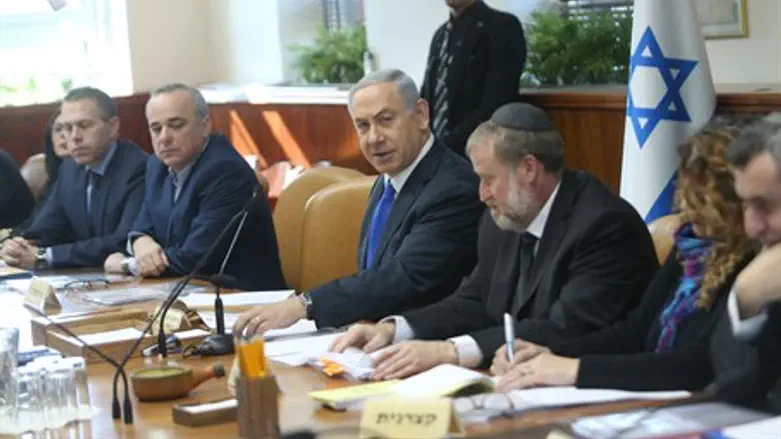
Prime Minister Binyamin Netanyahu warned Iran on Sunday that Israel would not allow it to obtain nuclear weapons, after sanctions were lifted under Tehran's historic nuclear deal with global powers.
"Israel's policy has been and will remain exactly what has been followed: to not allow Iran to acquire nuclear weapons," Netanyahu said during a cabinet meeting, according to his office.
Netanyahu said Israel will continue to monitor Iran's agreements "on nuclear, on ballistic missiles and on terrorism" for potential violations. If these occur, the international community should "take tough and aggressive sanctions" against Iran, Netanyahu said, adding that Israel "is ready to face any threat".
"Without our efforts leading the sanctions against the Iranian nuclear program Iran would have had nuclear weapons long ago," he claimed.
Netanyahu also said that due to the removing of sanctions, Iran will now have more resources to direct to its international terrorist activity.
Years of warnings and strike plans
Israel has warned for years that it would take steps to stop Iran from acquiring nuclear weapons, and that the military option was "on the table." The US and leftist elements inside Israel have been trying to thwart such a move, and no one really knows if Netanyahu was about to give a green light for a strike at any point in his history as prime minister.
According to news reports in Israel, the IDF was put on a pre-strike alert in 2010, when Netanyahu was prime minister and Ehud Barak was defense minister, but the move was vigorously opposed by then-Mossad chief Meir Dagan, who called it "illegal," and then-IDF Chief of Staff Gabi Ashkenazi.
In 2012, the Obama administration leaked details of purported cooperation between Israel and Azerbaijan, which neighbors Iran, on a strike option against Iran's nuclear program. Foreign Policy cited "four senior diplomats and military intelligence officers" who said that "the United States has concluded that Israel has recently been granted access to airbases on Iran’s northern border. To do what, exactly, is not clear. 'The Israelis have bought an airfield, and the airfield is called Azerbaijan,' a senior administration official was cited as saying. The leak reportedly prevented the attack plans from ever materializing.
The administration has also mocked Netanyahu, through media go-betweens, for supposedly being too "chickns**t" to strike the Iranian program.
A Kuwaiti newspaper has reported that President Obama thwarted an Israeli military attack against Iran's nuclear facilities in 2014 by threatening to shoot down Israeli jets before they could reach their targets in Iran. Following Obama's threat, Netanyahu was reportedly forced to abort the planned Iran attack.
According to Al-Jarida, the Netanyahu government took the decision to strike Iran some time in 2014 soon after Israel had discovered the United States and Iran had been involved in secret talks over Iran’s nuclear program and were about to sign an agreement in that regard behind Israel's back.
Over the years, the program has become more heavily fortified and an Israeli strike upon it appears more difficult to achieve than ever. However, no one can tell what Israel will do when it feels its back is up against the wall.
It is likely that Netanyahu is hoping that a new US president in 2017 will attack Iran. It is clear that Israel would much rather see the US, with its vast superiority over Iran, carry out such an attack, than to have the task fall upon Israel. Barak said in 2014 that a US military attack against Iran’s nuclear facilities would take a “fraction of one night” to complete and would be easier for the United States than the 2013 planned campaign against Syrian President Bashar Assad’s chemical weapons infrastructure. “It’s a simpler operation to get rid of the [Iranian] arsenal,” Barak said.
Republican candidate Donald Trump has said that the Obama administration’s nuclear agreement with Iran was “a bad deal” which would “lead to a nuclear holocaust”, having been negotiated by an “incompetent” secretary of state, John Kerry.
He did not say that he would tear the deal up but promised to “police” it in a tough way.
Ted Cruz has said multiple times that he will tear up the deal as soon as he enters office.
